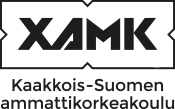Advanced Control Methods and Simulation (5 cr)
Code: 299002212-3001
General information
Enrollment
02.01.2019 - 14.01.2019
Timing
07.01.2019 - 26.04.2019
Number of ECTS credits allocated
5 op
Virtual portion
1 op
Mode of delivery
80 % Contact teaching, 20 % Distance learning
Campus
Kotka Campus
Teaching languages
- English
- Finnish
Seats
0 - 35
Degree programmes
- Degree Programme in Energy Engineering
Teachers
- Timo Lyytikäinen
- Merja Mäkelä
Teacher in charge
Merja Mäkelä
Groups
-
EN16S
Objective
After this study unit, a student is able to derive dynamic differential equation models based on physical phenomena design and realize process experiments, analyze them, and produce time-continuous difference equation models based on sampled data (time-series models) present main multi-variable control methods in energy production and in process industries apply simulation programs to the main modelling procedures.
Content
Single input - single output dynamic models of basic process dynamics and PID controllers Multivariable process and controller models as a vector and matrix presentation (0,25) Dynamic differential and Laplace transfer function models based on first principles (0,5) Discrete time-series and z tranform models based on sampled data (0,5) Optimization in model predictive control (0,25) Fuzzy logic as a modelling and control method (0,5) Neural network technology as a modelling and control method (0,5) Advanced control applications related to energy production, quality control and maintenance monitoring Computing and simulation applications by using Matlab Simulink and control systems
Materials
1. Moodle materials.
2. Dorf, C.D., Bishop, R.H., Modern Control Systems, 10. painos, Addison- Wesley, USA 2005, 881 s.
3. Harju, T., Marttinen, A., Säätöpiirin virityksen perusteet, Control CAD, Espoo 2001, 166 s.
Teaching methods
Scheduled track:
After completing this course, you will be able to
* derive for dynamic phenomena differential equation models based on first principles
* design and realize process experiments, analyze them and create continuous and discrete models based on sampled data
* present the arrangement and realization of multivariable control methods used in energy production and other process industries
* apply simulation and design program tools to the description of process systems.
How would you create dynamic flow balance and heat balances of a flow-through tank using differential equations for Matlab Simulink simulations
How would you realize a process experiment of a heat exchanger and work out a time-series model based on sampled data and describing heat content, using Matlab Identification Toolbox?
Why could fuzzy logic or modelpredictive control improve the quality of products or the energy efficiency of a process plant?
Why is Matlab Simulink very widely used as a basic modelling and simulation tool, and how are you able to utilize Matlab in simulations of processes?
Student workload
* 60 h lectures, mathematical and Matlab Simulink exercises
* 75 omatoimista opiskelua
Further information
Prerequisite courses are
1. Fluid Dynamics
2. Thermodynamics and Heat Transfer
3. Energy Engineering Mathematics 2
4. Measurement and Control Technology.
Evaluation scale
1-5
Assessment criteria, good (3)
Excellent (5), good (4-3), satisfactory (2-1), fail (0)
Assessment methods and criteria
Exam (60 %), mathematical and Matlab Simulink projects (40 %), with grades 0 - 5.
Assessment criteria, fail (0)
A missing exam.
